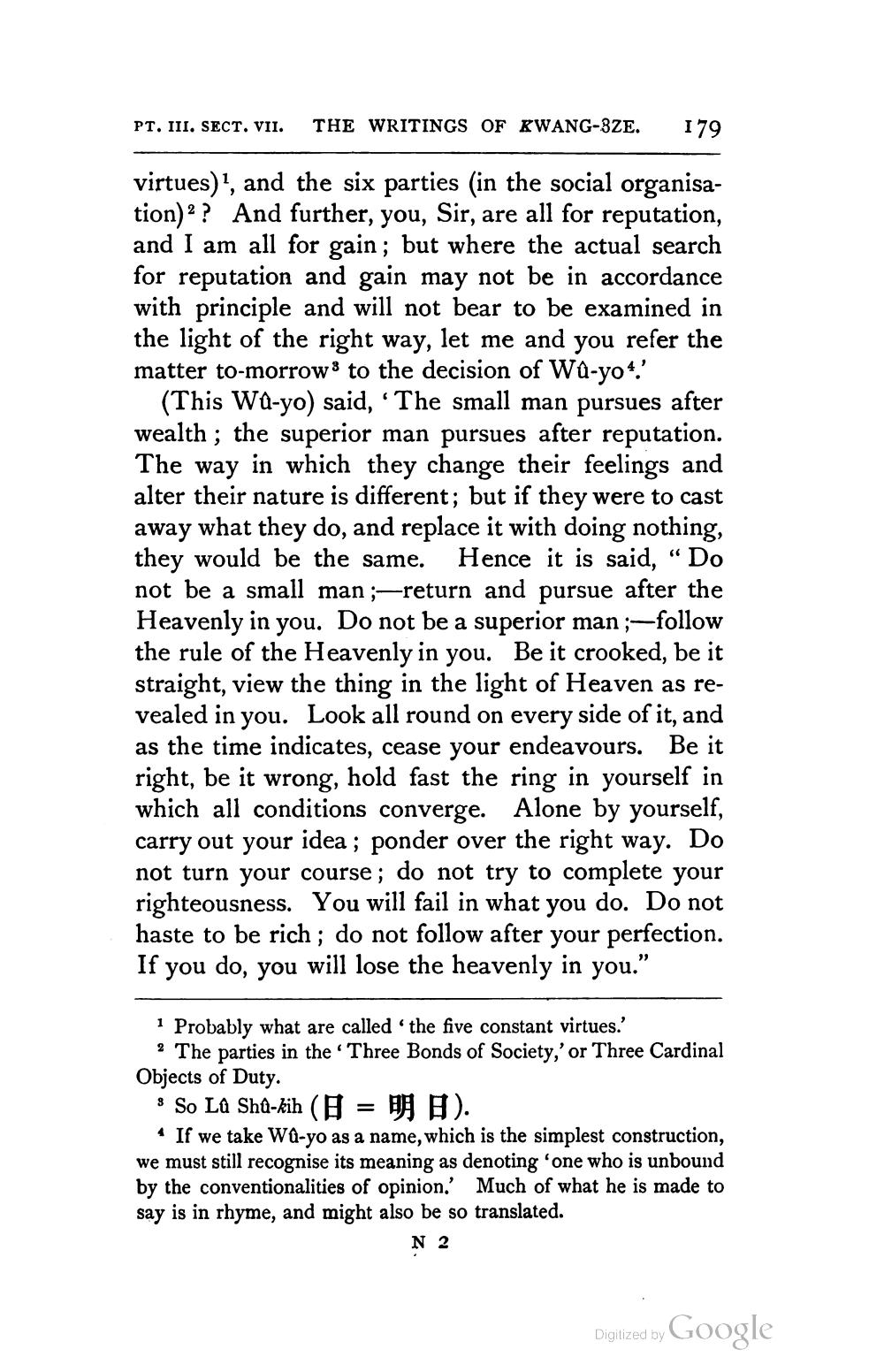________________
PT. III. SECT. VII.
THE WRITINGS OF KWANG-BZE.
179
virtues)', and the six parties (in the social organisation)2 ? And further, you, Sir, are all for reputation, and I am all for gain; but where the actual search for reputation and gain may not be in accordance with principle and will not bear to be examined in the light of the right way, let me and you refer the matter to-morrow to the decision of Wd-yo4.'
(This Wa-yo) said, 'The small man pursues after wealth; the superior man pursues after reputation. The way in which they change their feelings and alter their nature is different; but if they were to cast away what they do, and replace it with doing nothing, they would be the same. Hence it is said, “Do not be a small man ;-return and pursue after the Heavenly in you. Do not be a superior man ;-follow the rule of the Heavenly in you. Be it crooked, be it straight, view the thing in the light of Heaven as revealed in you. Look all round on every side of it, and as the time indicates, cease your endeavours. Be it right, be it wrong, hold fast the ring in yourself in which all conditions converge. Alone by yourself, carry out your idea ; ponder over the right way. Do not turn your course; do not try to complete your righteousness. You will fail in what you do. Do not haste to be rich ; do not follow after your perfection. If you do, you will lose the heavenly in you."
1 Probably what are called the five constant virtues.'
2 The parties in the Three Bonds of Society,' or Three Cardinal Objects of Duty.
8 So La Shu-kih (E = HH E).
• If we take Wd-yo as a name, which is the simplest construction, we must still recognise its meaning as denoting 'one who is unbound by the conventionalities of opinion.' Much of what he is made to say is in rhyme, and might also be so translated.
N 2
Digitized by Google




